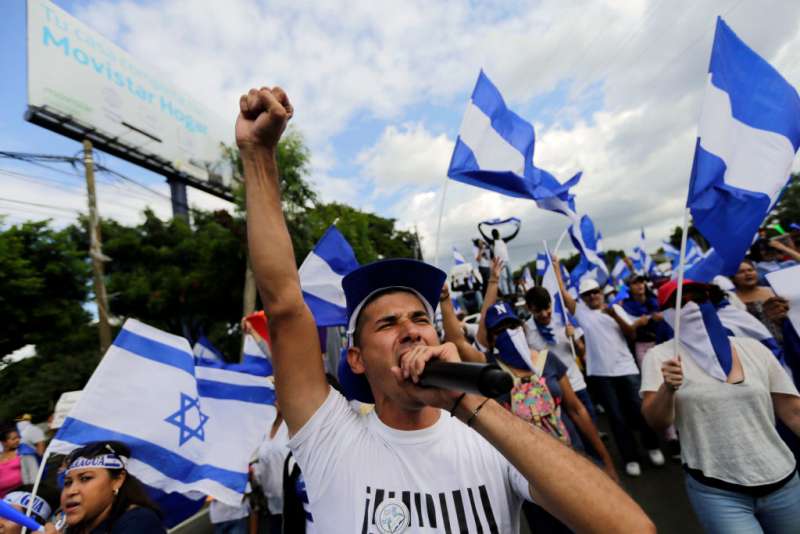Americans need to pray for peace in Nicaragua as the country faces continuing political tensions, violence and attacks on churches, said the head of the U.S. bishops’ Committee on International Justice and Peace.
“We mourn the deaths of hundreds of Nicaraguans, many in the prime of their youth, and are horrified at reports of desecrations of churches throughout the country,” Archbishop Timothy P. Broglio said in an Aug. 17 statement.
“It is precisely the Nicaraguan people’s intense faith that, despite the ongoing difficulties, fills me with great optimism,” he added. “Such a faith moves hearts to work for reconciliation in the fruitful spirit of Christian charity. I exhort the Church in the United States to join her Nicaraguan brothers and sisters in prayer for peace and justice in Nicaragua.”
Protests against president Daniel Ortega began April 18, after Ortega announced social security and pension reforms. The proposals were soon abandoned due to the strong outcry against them, but protests of Ortega’s government grew after security forces killed over 40 demonstrators. More than 300 people have died in the conflicts, according to local human rights groups. Anti-government protesters have faced attacks by combined groups of regular police, riot police, paramilitaries and vigilantes who back Ortega.
The country’s bishops have mediated on-again, off-again peace talks between the government and opposition groups. At the same time, churches have been attacked. Bishops and priests across the country have worked to separate protesters and security forces, and have been threatened and shot.
July 19 marked the 39th anniversary of the ouster of the Somoza dictatorship by the Sandinista National Liberation Front, in which Ortega was a leader. As junta leader and then president, he opposed U.S.-backed right-wing counterrevolutionaries in the 1980s.
At a pro-government celebration July 20, Ortega told thousands of supporters that the Nicaraguan bishops are attempting a coup. His basis for the claim was their proposal to hold early presidential elections.
In the wake of the accusations, at least eight Catholic churches have been desecrated.
In early July, Cardinal Leopoldo Brenes, apostolic nuncio Archbishop Waldemar Stanislaw Sommertag, and Bishop Silvio Báez were assaulted by pro-government groups during a pastoral visit to Diriamba, about 25 miles south of Managua. Other bishops and priests have also suffered attacks.
On July 28 thousands of demonstrators took to the streets of Nicaragua to support bishops and priests in the face of the attacks.
In response to an invitation from Nicaragua’s bishops, Broglio visited the country Aug. 3-6.
In his Aug. 17 statement, he said he was “greatly moved by the unshakeable faith of the people of Nicaragua.”
“Disagreement, even vociferous disagreement, is legitimate, but those responsible for the common good must, at a minimum, ensure the safety of peaceful protestors,” he said, citing Holy See Secretary of State Cardinal Pietro Parolin’s hope that dialogue may begin again.
Speaking on behalf of the U.S. bishops’ Committee on International Justice and Peace, Broglio voiced “our profound and steadfast solidarity with our brothers in the Nicaraguan episcopate, who, together with their priests and ministers, are feeding Christ’s flock in Nicaragua during this dangerous time of civil strife.”
The archbishop celebrated Sunday Mass on Aug. 5 at Managua’s cathedral with Cardinal Leopoldo Brenes of Managua.
“We find ourselves celebrating the Eucharist to highlight the fact that we share the same faith. Our communion is greater than any distance,” the American archbishop said in his homily to the congregation.
Broglio said Nicaragua’s bishops “are seeking to serve this Church and their country.”
“My presence illustrates that, together, we walk in the service of truth, of the poor, and of peace,” he said in his homily.

